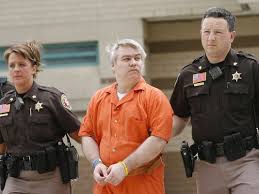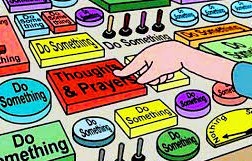Richard Rohr: In Need of Healing
I believe the Twelve-Step programs are a movement of the Spirit in our time. In creating Alcoholics Anonymous in 1935, Bill Wilson and Dr. Bob Smith, with typical American pragmatism, designed a truly practical program that really worked to change lives. That’s why I call it the American contribution to the history of spirituality. Twelve-Step spirituality rediscovered the real transformative power that is the core of the Gospel. It is the spirituality of imperfection that Jesus taught, Paul clarified, Francis and Clare lived, and Thérèse of Lisieux brought to light for the modern world. Transformation has little to do with intelligence, willpower, or perfection. It has everything to do with honest humility, willingness, and surrender.
On the practical (read “transformational”) level, the Gospel message of Jesus and the Twelve-Step message of Bill Wilson are largely the same. The first foundational connection is that addiction can be a metaphor for what the biblical tradition called sin. It is quite helpful to see sin, like addiction, as a very destructive disease, instead of merely something that is culpable, punishable, and “makes God unhappy.” If sin indeed makes God unhappy, it is because God loves us, desires nothing more than our happiness, and wills the healing of our disease. The Twelve Steps reconnect the essential ties between vulnerability, healing, and love.
Pope Francis clearly understands sin in this way. Shortly after he proclaimed the Holy Year of Mercy, he was asked why humanity is so in need of mercy. He replied that in part it’s due to “considering our illness, our sins, to be incurable, things that cannot be healed or forgiven. We lack the actual concrete experience of mercy. The fragility of our era is this, too: we don’t believe that there is a chance for redemption; for a hand to raise you up; for an embrace to save you, forgive you, pick you up, flood you with infinite, patient, indulgent love; to put you back on your feet. We need mercy.” [1]
The healing ministry of Jesus should have made this crystal clear; the majority of Jesus’ work was healing, with many of his teachings illustrating the healings. Nine of Jesus’ healing stories are actually exorcisms. Although we may think we are too sophisticated for such stories, the fact that there are so many speaks to their importance. I understand “possession by devils” as a primitive but absolutely truthful way of referring to what we now call addiction. In each case, the person is in some sense trapped by a larger force, and is powerless to do anything about it. The only cure for possession is “repossession.” You have to be repossessed by Something Greater than the disease. This is why Bill Wilson says a “vital spiritual experience” is absolutely foundational for full recovery.
More and more I’m convinced that when the great medieval spiritual teachers talked so much about attachment, they were really talking about addiction. We are all attached and addicted in some way. At the very least, we are addicted to our compulsive dualistic patterns of thinking, to our preferred self-image, and to the unworkable programs for happiness we first developed in childhood. In short, each of us is addicted to our way of thinking. This is perfectly obvious once we consider it, but we do not tend to think about the way we think!





